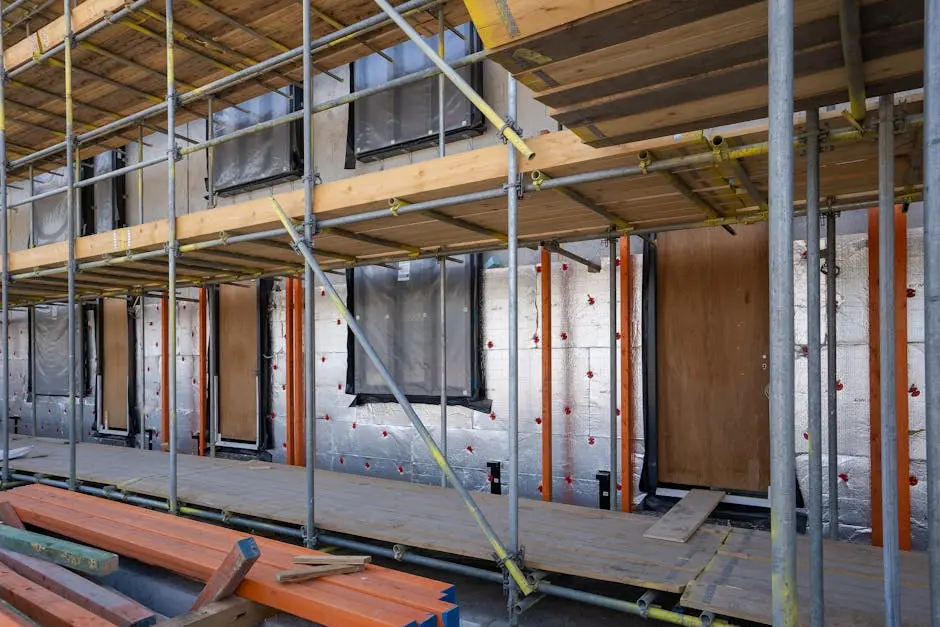
When it comes to keeping our homes comfortable and energy-efficient, insulation plays a vital role. One of the most effective materials available today is closed-cell (CC) foam. This versatile product not only offers superior insulation but comes with a variety of benefits that can enhance your living space. In this blog post, we will explore the many ways your home insulation can be improved and why you should consider it for your next renovation project.
1. Exceptional Thermal Resistance
Closed-cell foam is renowned for its exceptional thermal resistance, making it a prime choice for homeowners looking to enhance their insulation. The unique cellular structure of this foam traps air and creates a barrier against heat transfer, keeping your home warm in winter and cool in summer. This provides a more consistent indoor temperature, minimising dependence on heating and cooling systems. Learn more about our wide range of foam products that offer versatile insulation solutions.
In fact, this type of foam can significantly reduce energy costs over time, minimising heat loss and leading to lower utility bills—a win-win for comfort and savings. By effectively regulating your home’s temperature, you’re not only creating a pleasant living environment but also contributing to a more sustainable future. Discover more about Rocon Foam’s commitment to sustainability.
2. Improved Energy Efficiency
In modern home improvement, energy efficiency is essential, and this foam is at the forefront. Its high R-value per inch delivers more insulation in less space, making it perfect for attics and crawl spaces. This translates into reduced energy consumption, which is both economical and environmentally beneficial. Learn how our about us page reflects our dedication to enhancing energy efficiency with advanced products.
Installing this type of foam can also increase a property’s resale value, as energy-efficient homes with lower operating costs attract buyers. By investing in this insulation, you’re making a smart decision that enhances both home comfort and long-term financial value.
3. Effective Moisture Barrier with Closed-Cell Foam
A notable benefit of closed-cell foam is its effectiveness as a moisture barrier. Moisture can cause serious issues like mold, mildew, and structural damage. This insulation prevents moisture from entering walls and ceilings, promoting a dry, healthy home. For further insights, explore our products page for moisture-resistant foam solutions.
By keeping moisture at bay, this insulation prolongs your home’s structural lifespan, reducing the need for costly repairs and maintaining a healthier indoor environment.
4. Enhanced Soundproofing
An often-overlooked benefit is its soundproofing capability. The dense foam structure provides acoustic insulation, absorbing sound waves and reducing noise from outside or between rooms. This is especially beneficial for homes in urban areas or near busy streets.
With this soundproofing feature, closed-cell foam helps create a peaceful home environment, letting family members enjoy private spaces without disruption. Whether you’re relaxing or working from home, its soundproofing capabilities contribute significantly to an improved quality of life.
5. Resistance to Mold and Mildew
This foam’s impermeable nature not only protects against moisture but also resists mold and mildew, which can cause health risks and expensive repairs. This natural resistance makes it ideal for damp areas like basements and bathrooms.
With this foam, you’re creating a cleaner and healthier environment, safeguarding against moisture-related allergens and promoting a safer home.
6. Increased Structural Integrity with Closed-Cell Foam
Besides insulation, this foam adds structural integrity to your home, as its rigidity strengthens walls, roofs, and floors, fortifying the property against extreme weather. Especially in areas prone to severe weather, homeowners can rest assured that this insulation provides additional protection. Learn more about the varied applications of our foam products on our homepage.
Investing in this type of insulation equates to a commitment to the long-term durability of your home, making it a choice for enhanced resilience and peace of mind.
7. Flexible Application Options
Closed- cell foam offers unmatched flexibility in application. Unlike traditional materials, this foam can be sprayed or injected into hard-to-reach areas, making it suitable for diverse renovations. Check our products page for versatile insulation solutions that adapt to different home layouts.
Homeowners can also customise the foam’s thickness to meet specific insulation requirements, whether for a new build or retrofit project, ensuring everyone can benefit from its versatility.
8. Long-Lasting Durability with Closed-Cell Foam
A standout feature of this foam is its long-lasting durability. Unlike materials that may sag or degrade, this foam retains its form and performance over decades, saving homeowners from frequent replacements and maintenance costs.
Additionally, it’s pest-resistant, preventing insect damage that affects some organic materials. Explore the Rocon Foam website to see how our products combine durability and resilience for long-term performance.
9. Eco-Friendly Choice
In a world focused on sustainable choices, this foam is often produced with eco-conscious materials, helping to reduce carbon footprints. Its energy efficiency lowers greenhouse gas emissions, making it a responsible choice for environmentally-minded homeowners.
By selecting this foam, you’re aligning with the movement towards sustainable living and conserving resources for future generations.
10. Closed-Cell Foam is a Cost-Effective Investment
Finally, choosing this foam proves to be a cost-effective investment. While the initial installation may be higher than traditional materials, the long-term benefits outweigh the upfront cost. With substantial energy savings over time, homeowners often recoup their investment.
The combination of increased resale value and lower maintenance costs make this insulation choice a smart financial decision. By opting for Rocon Foam’s high-quality insulation solutions, you’re investing in both comfort and future savings. Visit our home page to explore more benefits of our insulation products.

